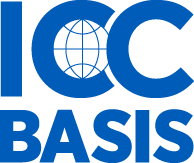Digital Entrepreneurship to close the connectivity gap
International Chamber of Commerce (ICC) Business Action to Support the Information Society (BASIS)

Session 247
Meaningful access to an open and inclusive Internet is the central issue of our time, and a fundamental tool enabling free speech and empowering people in the 21st century.
In 2018 ITU reported that 51.2% of the world’s population was connected to the Internet, almost 60% of households had Internet connection and nearly 96% of the world’s population lives within reach of mobile cellular network. Connecting those who are not yet connected is the greatest opportunity for the continued development of an open and inclusive Internet.
The private sector has been an important actor in deploying Internet related infrastructure and innovating and delivering a wide range of ICT applications and services. On these investments local and global digital ecosystems have flourished – developing demand and supply sides of national economies.
Sustainable private sector investment will continue to be an increasingly important factor in pursuing further economic and social development. Aligning public policies that promote rather than deter investment in infrastructure, and technologies to enable new applications and services is paramount. At the same time, as the Broadband Commission noted in its 2018 report, “digital development is not just about technology; it is also about overturning and recreating business models”.
This workshop will explore how new and innovative business models can help bridge the connectivity gap by accelerating creative disruption and breaking new ground with new approaches and products.
The unconnected population is disproportionately female, elderly, less educated, lower income and rural. This workshop will share examples and case studies and draw good practices from public-private projects and private-sector initiatives to connect these populations.
The workshop aims to discuss how new business models and services can help reach the Broadband Commission’s 2025 connectivity targets or the ambitious aim of SDG 9c to provide universal and affordable access to the Internet in least developed countries by 2020.
Speakers/Panellists
Mr Pablo Bello, Executive Director, ASIET
Mr István Bozsóki, Head of Telecommunication Networks and Spectrum Management Division, ITU
Ms Sylvia Cadena, Head of Programs, APNIC Foundation
Mr Anir Chowdhury, Policy Advisor, Prime Minister’s Office, Bangladesh
Mr Genaro Cruz, Senior Market Engagement and Advocacy Manager, Mobile for Development, GSMAMr Genaro Cruz, Senior Market Engagement and Advocacy Manager, Mobile for Development, GSMA
Ms Connie Francis Shirima, Principal IT Officer- Regulatory, Tanzania
Ms Meshingo Jack, Analyst Policy & Internet Services, Broadband & Universal Services, Botswana Communications Regulatory Authority
Mr Gonzalo Lopez-Barajas, Public Policy and Internet Manager, Telefonica
Mr Ben Wallis, Regulatory Policy Analyst, Microsoft
Session's link to WSIS Action Lines
-
 C2. Information and communication infrastructure
C2. Information and communication infrastructure
-
 C3. Access to information and knowledge
C3. Access to information and knowledge
-
 C6. Enabling environment
C6. Enabling environment
-
 C11. International and regional cooperation
C11. International and regional cooperation
Session's link to Sustainable Development Process
-
 Goal 8: Promote inclusive and sustainable economic growth, employment and decent work for all
Goal 8: Promote inclusive and sustainable economic growth, employment and decent work for all
-
 Goal 9: Build resilient infrastructure, promote sustainable industrialization and foster innovation
Goal 9: Build resilient infrastructure, promote sustainable industrialization and foster innovation
-
 Goal 10: Reduce inequality within and among countries
Goal 10: Reduce inequality within and among countries
-
 Goal 17: Revitalize the global partnership for sustainable development
Goal 17: Revitalize the global partnership for sustainable development